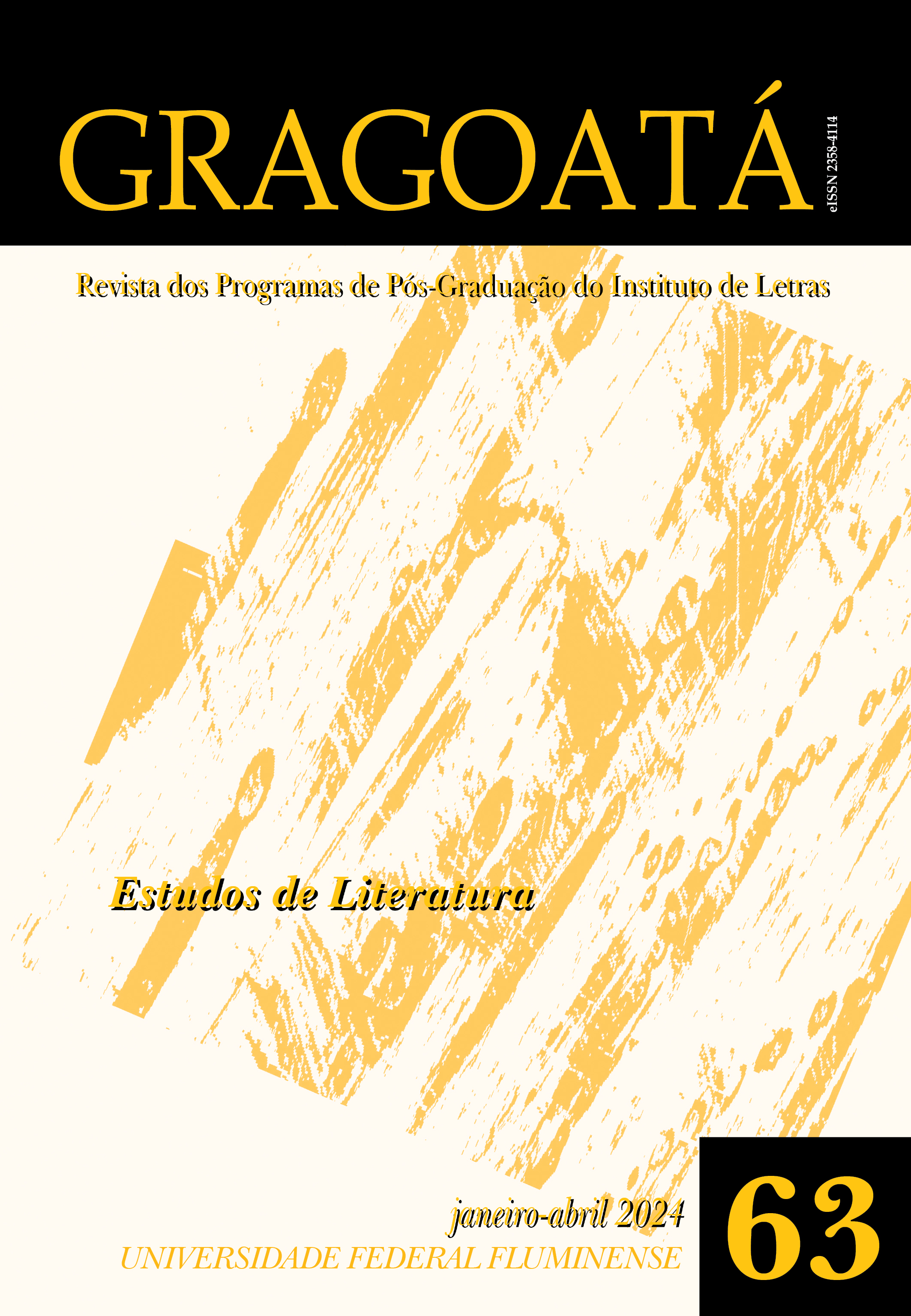From the El Rastro de los Huesos to the bone woman in Chicas Muertas: dialogues, continuities, transformations
DOI:
https://doi.org/10.22409/gragoata.v29i63.58359.esKeywords:
chronicle and Argentine non-fiction literature; post-dictatorial memories; Leila Guerriero and Selva AlmadaAbstract
The article proposes a dialogue between the chronicle report The Trace in the Bones (2008) by Leila Guerriero, and the non-fiction book Dead Girls (2014) by Selva Almada. It will consider the various moments featured in both texts regarding the struggle for memory and justice in the post-dictatorial context in Argentina. To this end, the practices and knowledge depicted in both texts are examined, as well as their links with 'narratives of education' (Bildungsroman), the role of what Jelín (2007) has called familism, or its counterpart, the presence of the unheimlich in the domestic space, and the emergence of a genre diction that redefines the contours of human rights.
Downloads
References
AGAMBEN, Giorgio. Lo que queda de Auschwitz. El archivo y el testigo. Homo sacer III. Valencia: Pre-textos, 2000.
ALMADA, Selva. Chicas muertas. Buenos Aires: Literatura Random House, 2014.
AMADO, Abril. Discursos alternativos: ¿disidentes o coincidentes?
El rol del discurso esotérico en Chicas Muertas de Selva Almada. Revista Luthor, v. 40, n. 9, p. 37-46, 2019. Disponible en: https://dialnet.unirioja.es/descarga/articulo/9056156.pdf.
BONANO, Mariana. Las crónicas de Leila Guerriero y las modulaciones de la voz. Mirada, subjetividad y autoficción. Perífrasis, Revista de Literatura, Teoría y Crítica, v. 11, n. 22, p. 100-111, 2000. Disponible en: https://doi.org/10.25025/perifrasis202011.22.06.
CABRAL, María Celeste. Chicas muertas de Selva Almada. Nuevas formas de la memoria sobre el femicidio en la narrativa argentina. Revista Orbis Tertius, v. 23, n. 28, e094, 2018. Disponible en: https://doi.org/10.24215/18517811e094.
DILLON, Marta. Desaparecida. Buenos Aires: Sudamericana, 2015.
DIZ, Tania. Tensiones, genealogías y feminismos en los 80: Un acercamiento a alfonsina, primer periódico para mujeres. Mora, Buenos Aires, v. 17, n. 2, 2011. Disponible en: http://www.scielo.org.ar/scielo.php?script=sci_arttext&pid=S1853-001X2011000200004&lng=es&nrm=iso.
FALBO, Graciela. Discípulas de Walsh. Revista Anfibia, 24/07/2017. Disponible en: https://www.revistaanfibia.com/discipulas-de-walsh/. Acceso em: 15 Mayo 2023.
GARCÍA, Laura Rafaela. Un modo de leer los restos del pasado: “La voz de los huesos” de Leila Guerriero. In: CAMPUZANO, Betina; Gutiérrrez, Maria Verónica. Eslabones de la memoria reciente – La crónica urbana latinoamericana. Salta: Universidad Nacional de Salta, 2018. p. 97-106.
GUERRIERO, Leila. El rastro de los huesos. Gatopardo, México, n. 88, 2008. Disponible en: https://gatopardo.com/reportajes/el-rastro-de-la-dictadura-argentina-en-los-huesos/.
JELÍN, Elizabeth. Víctimas, familiares y ciudadanos/as. Cadernos Pagu, v. 27, p. 37-60, 2007.
JELÍN, Elizabeth. Los trabajos de la memoria. Madrid: Siglo XXI, 2002.
MORENO, María. Oración. Carta a Viki y otras elegías políticas. Buenos Aires: Random House, 2018.
MOSSE, Luis. La desmistificación del interior en la literatura argentina contemporánea. Reflexiones en torno a lo rural desde la intersección entre género y clase. Prácticas de Oficio. Investigación y Reflexión en Ciencias Sociales, Buenos Aires, v. 1, n. 24, p. 31-44, 2020. Disponíble en: https://revistas.ungs.edu.ar/index.php/po/article/view/5/
MOURE, Clelia. Crónica y poesía: la resistencia de la memoria. In: Congreso Internacional CELEHIS de Literatura, VI. Anales, Mar del Plata: Universidad Nacional de Mar del Plata, p. 1565-1571, 2018. Disponíble en: https://fh.mdp.edu.ar/encuentros/index.php/ccelehis/6celehis/paper/view/1816/1228/
SEGATO, Rita. Femigenocidio y feminicidio: una propuesta de tipificación. Revista Herramienta, v. 49, 2012. Disponible en: http://repositorio.ciem.ucr.ac.cr/jspui/bitstream/123456789/151/1/RCIEM132.pdf.
Downloads
Published
How to Cite
Issue
Section
License
Copyright (c) 2024 Gragoatá

This work is licensed under a Creative Commons Attribution 4.0 International License.
Authors who publish in Gragoatá agree to the following terms:
The authors retain the rights and give the journal the right to the first publication, simultaneously subject to a Creative Commons license CC-BY-NC 4.0, which allows sharing by third parties with due mention to the author and the first publication by Gragoatá.
Authors may enter into additional and separate contractual arrangements for the non-exclusive distribution of the published version of the work (for example, posting it in an institutional repository or publishing it in a book), with recognition of its initial publication in Gragoatá.

Gragoatá is licensed under a Creative Commons - Attribution-NonCommercial 4.0 International.











